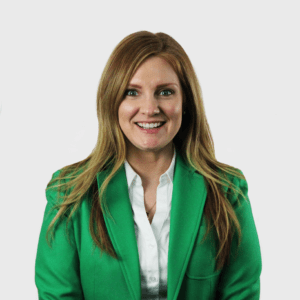Getting Ready for the New MDS Focused Survey
Jayne Warwick, RN, HBScN
Segment Marketing Manager, Skilled Nursing
PointClickCare
The new Minimum Data Set (MDS) Focused Survey will be expanded nationwide this year. Having been piloted in 25 nursing facilities last year, the Centers for Medicare and Medicaid Services (CMS) has indicated the new survey process will be more widespread in 2015. Staffing requirements, coding practices for MDS 3.0, specific attention on pressure ulcers, use of restraints, and use of psychotropic drugs are among the areas under scrutiny in the new survey process.
What’s driving the new survey process
With changes to the Five-Star Rating System and value-based reimbursement on the horizon, CMS recognizes the need to incent providers to focus more on individualized care planning and person-centered care. The quality measures (QMs), which are based on MDS 3.0, are also used to publicly report quality of care. (www.nursinghomecompare.com)
Accuracy in assessing and caring for residents at the highest possible level is the bottom line. Surveyors will be paying special attention to the provider’s ability to help a resident attain or maintain the highest attainable level of physical, mental, and psychosocial well-being.[1]
Do as I say, say as I do
The concept of providing care according to a resident’s care plan isn’t new. In the MDS Focused Survey process, there will be more scrutiny on whether the services provided matched the resident’s care plan. In a 2013 report by the Office of the Inspector General (OIG), it was found that nearly 40 percent of skilled nursing providers failed to care for residents as their care plan dictated.
Another report by the OIG found that almost half of the skilled nursing facilities (SNFs) reviewed had inaccuracies in how they coded the MDS relative to the medical record.
Special survey teams
The survey teams involved in the MDS Focused Survey pilot in 2014 were trained specifically to review resident assessments in greater detail than during the typical annual survey process. The pilot involved 25 facilities across five states. During the pilot, all facilities but one were cited with deficiencies related to MDS coding and resident care.
Each state is expected to devote two people to conduct the surveys, which will last an average of two days. Teams will use a combination of record review and resident interviews to complete the survey process.
Upon entering a facility, the survey team will ask for various reports, including:
- The 10 most recently completed MDS assessments.
- A list of correction requests submitted on those assessments.
- Medical records to support those assessments.
- Policies and procedures for the Resident Assessment Instrument (RAI), MDS, and quality measures.
- Staffing schedules of those involved in MDS coding, scheduling, and transmitting MDS information.
Target areas for deficiencies
Since this new survey process looks closely at person-centered care, there are areas that stand out and will be closely examined. These include:
- Pressure ulcers—are they accurately staged and documented?
- Antipsychotic drugs—is the staff knowledgeable on the classification of these medications?
- Use of restraints—are these being coded correctly?
What to do to prepare
Since this is a new type of survey, preparation is key. Educate staff on the purpose, intent, and execution of the survey to help them understand the background. Ensure staff is aware surveyors are there with a specific purpose but any deficiencies noted, even those outside of the intent of the survey, can be reported back to the state. All contributors to the MDS, whether they are performing care or collecting data, need to be aware of the QMs and data points being tracked.
Understanding the top deficiencies noted, developing focused audits, and ongoing monitoring programs of these areas will ensure documentation supports MDS coding and that data collection matches what can be supported through the clinical chart. This goes beyond the MDS effort – the process of examining, monitoring, and looking for areas of improvement in focused areas requires an interdisciplinary, well-informed team.
In our next article: Staffing levels.
In our next piece, we’ll look at the staffing portion of the new MDS Focused Survey and outline what is needed to be prepared.
Upcoming Webinar: MDS Focused Survey: Part 1 Clinical
Are you ready for the new MDS Focused Survey?
Join Jayne Warwick, Segment Marketing Manager for PointClickCare on June 18 @11 am ET for Part 1 in a webinar series.
Better understand the Clinical aspects you and your staff must be prepared for. Register now.
About the author
Jayne Warwick is an RN with almost 30 years of experience in long-term care (LTC) in both the US and Canada and has been a floor nurse, DON, Corporate Clinical Consultant, Director of Quality and Director of Operations for both small and large LTC chains. Over the past ten years with PointClickCare, Jayne has worked with homes throughout North America to effectively improve business operations and quality of care, while optimizing reimbursements through the implementation and use of electronic health records (EHRs). Jayne has extensive industry and regulatory knowledge for initiatives such as EHR, vendor certification, MDS 3.0 and QAPI. Jayne is now the Segment Marketing Manager, Skilled Nursing for PointClickCare and a steadfast champion for PointClickCare customers.
I Advance Senior Care is the industry-leading source for practical, in-depth, business-building, and resident care information for owners, executives, administrators, and directors of nursing at assisted living communities, skilled nursing facilities, post-acute facilities, and continuing care retirement communities. The I Advance Senior Care editorial team and industry experts provide market analysis, strategic direction, policy commentary, clinical best-practices, business management, and technology breakthroughs.
I Advance Senior Care is part of the Institute for the Advancement of Senior Care and published by Plain-English Health Care.
Related Articles
Topics: Articles , Finance , Technology & IT











